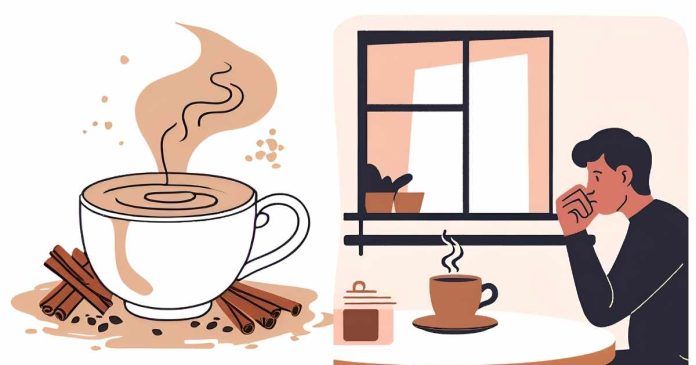Traditional Chai (Caffeinated Version)
In the traditional Indian chai (or masala chai), caffeine comes from the base ingredient: black tea. Chai is a spiced tea, and the standard ingredients in its preparation include:
- Black tea leaves (typically Assam or Darjeeling tea, which are both caffeinated)
- Spices such as cardamom, cinnamon, ginger, cloves, and black pepper
- Milk (often whole milk, though variations exist)
- Sweetener (sugar, honey, or jaggery)
The caffeine content in black tea varies depending on the tea variety and steeping time, but on average, an 8-ounce cup of chai (with a typical serving of black tea) contains between 30-50 milligrams of caffeine. For comparison, a typical cup of coffee contains about 95 milligrams of caffeine. The presence of spices and milk adds flavor, but does not affect the caffeine content significantly.
Why Does Traditional Chai Contain Caffeine?
- Black tea is naturally caffeinated. The caffeine level in tea can vary based on the processing method (e.g., black tea vs. green tea) and brewing time. In chai, the tea leaves are usually brewed for several minutes to extract both flavor and caffeine.
- Chai spices (cardamom, cinnamon, ginger, etc.) are meant to enhance the flavor of the tea rather than affect its caffeine content. Some spices may have mild stimulant properties (like ginger), but they do not contribute significant caffeine.
Caffeine-Free Chai Alternatives
If you’re looking to avoid caffeine, there are several ways to make a caffeine-free chai without sacrificing the rich, spiced flavor of the traditional version.
A. Herbal Chai (Caffeine-Free Base)
Instead of using black tea, you can substitute it with herbal teas that are naturally free of caffeine. Common choices include:
- Rooibos Tea: This is a popular caffeine-free alternative made from the rooibos plant, native to South Africa. It has a naturally sweet, slightly woody flavor and pairs wonderfully with chai spices.
- Herbal Blends: Teas like chamomile or peppermint can be used to create caffeine-free chai blends. While these teas don’t have the tannic strength of black tea, they offer a soothing, floral taste.
- Honeybush Tea: Another South African herbal tea, similar to rooibos, honeybush is slightly sweeter and caffeine-free, which works well in chai recipes.
B. Spiced Milk (Non-Tea Chai)
A spiced milk chai is a version of chai where no tea is added at all. This is a completely caffeine-free drink, as it is just a combination of milk and spices. It’s sometimes known as masala doodh (spiced milk) in India.
Ingredients for a non-caffeinated spiced milk:
- Milk (cow’s milk or plant-based milk like almond or oat)
- Spices (cardamom, cinnamon, cloves, ginger, black pepper)
- Sweetener (sugar, jaggery, honey)
In this case, you’re essentially making a spiced milk drink, which can be rich, flavorful, and soothing, without any trace of caffeine.
C. Decaffeinated Tea Chai
If you love the taste of black tea but want to avoid caffeine, you can opt for decaffeinated black tea. Decaf tea is made by removing most of the caffeine from the tea leaves, and it still retains much of the tea’s flavor, although slightly milder. You can brew decaf tea with the usual chai spices and milk to create a less-caffeinated version of traditional chai.
However, even decaf tea isn’t completely caffeine-free — it typically contains small traces of caffeine (about 1-5 milligrams per 8-ounce cup). If you’re highly sensitive to caffeine, you may want to steer clear of decaf versions as well.
Caffeine Content in Chai: Key Differences
To summarize the caffeine content across different chai types:
- Traditional Chai (Black Tea Base): 30-50 mg of caffeine per 8 oz.
- Herbal Chai (e.g., Rooibos or Chamomile): 0 mg of caffeine.
- Spiced Milk (No Tea): 0 mg of caffeine.
- Decaffeinated Chai (Black Tea Base): 1-5 mg of caffeine per 8 oz.
Conclusion
- Traditional chai (the spiced tea with black tea as a base) does contain caffeine due to the presence of black tea, though it’s much lower than coffee.
- For caffeine-free chai, you can make your drink with herbal teas (like rooibos or chamomile), or opt for spiced milk if you prefer a completely tea-free version. These alternatives provide the rich flavors of chai without the stimulating effects of caffeine.



